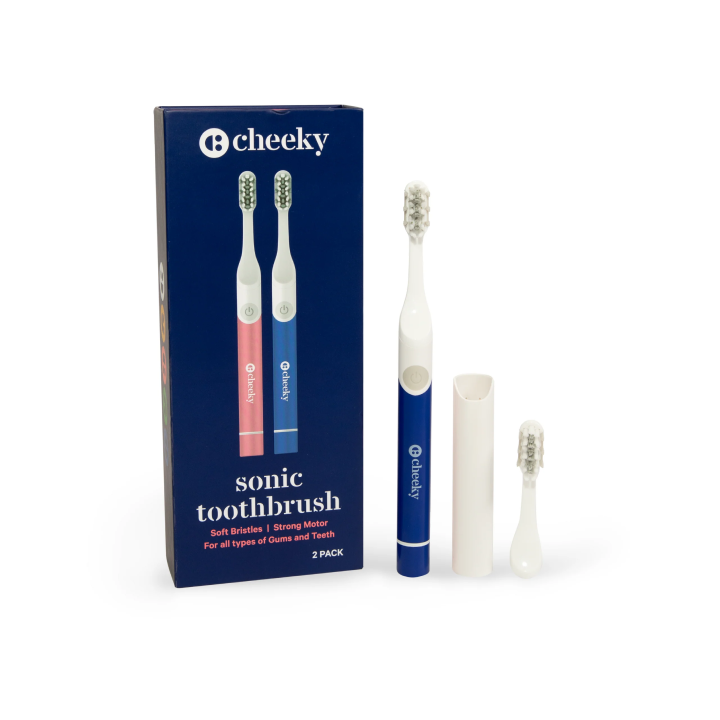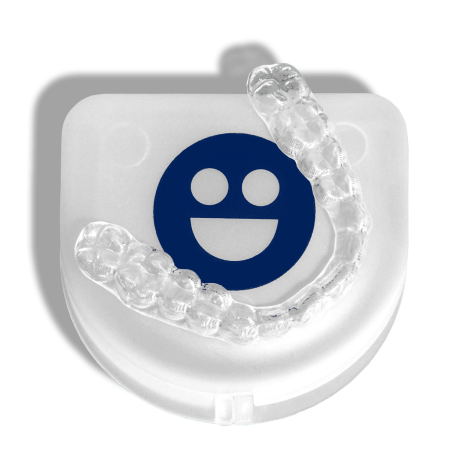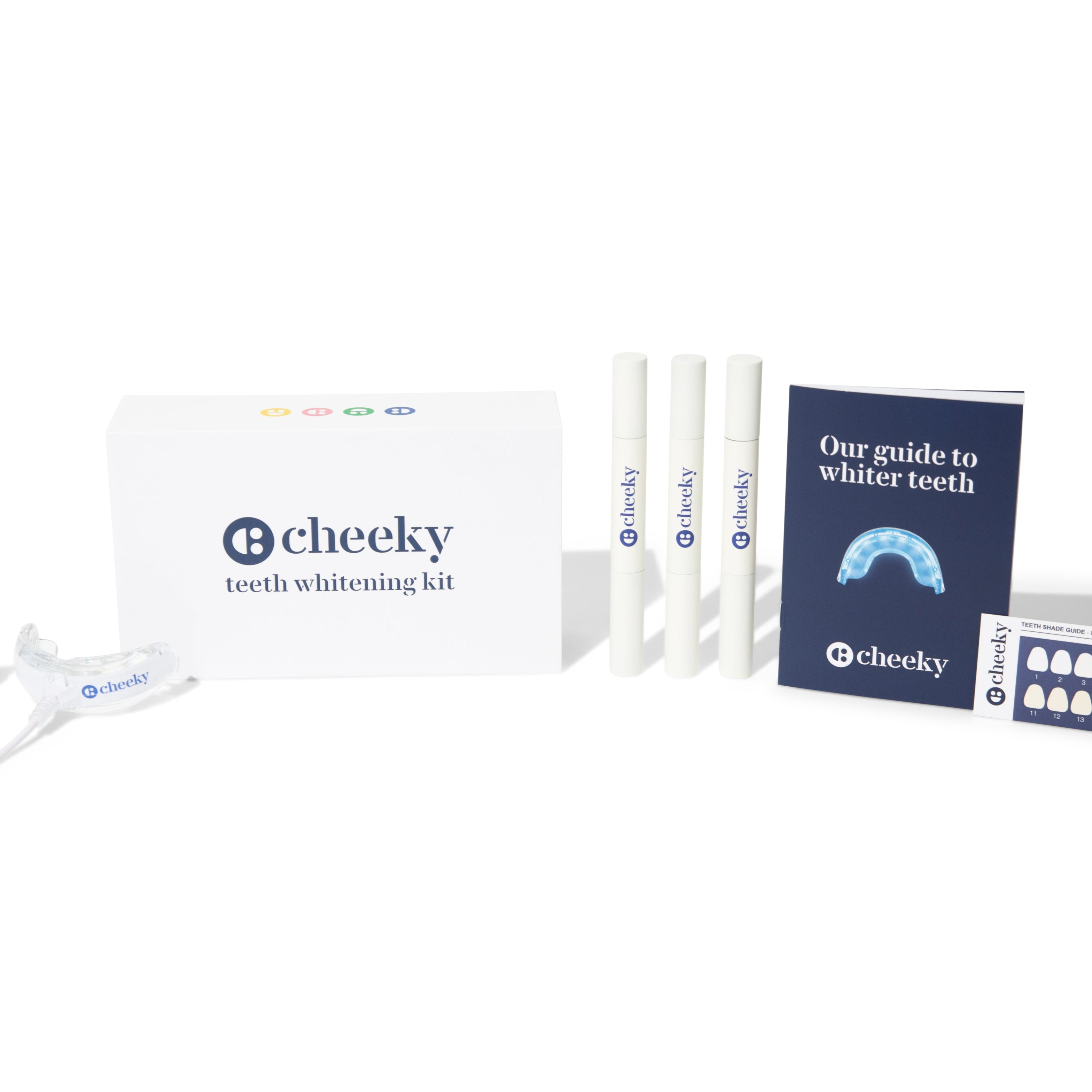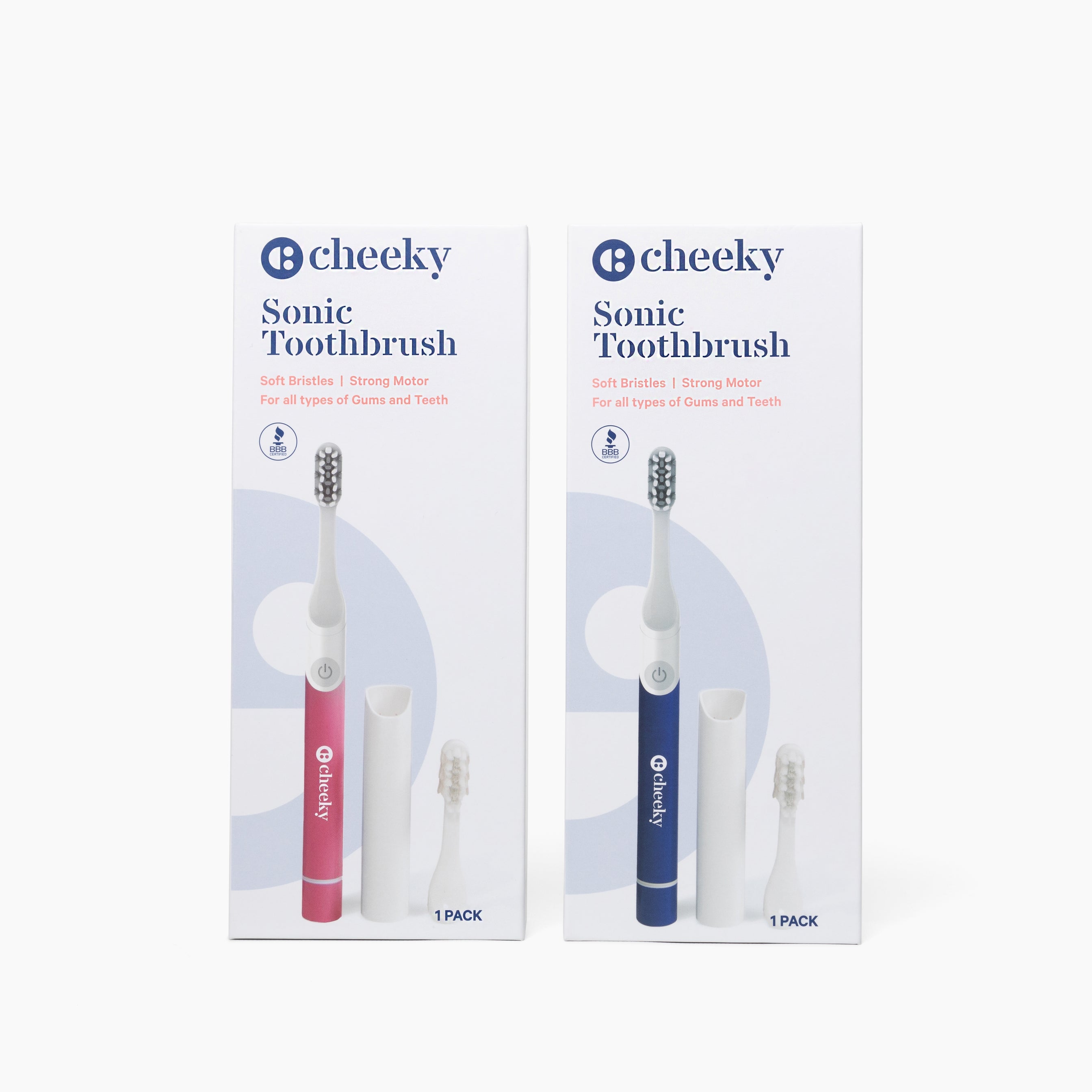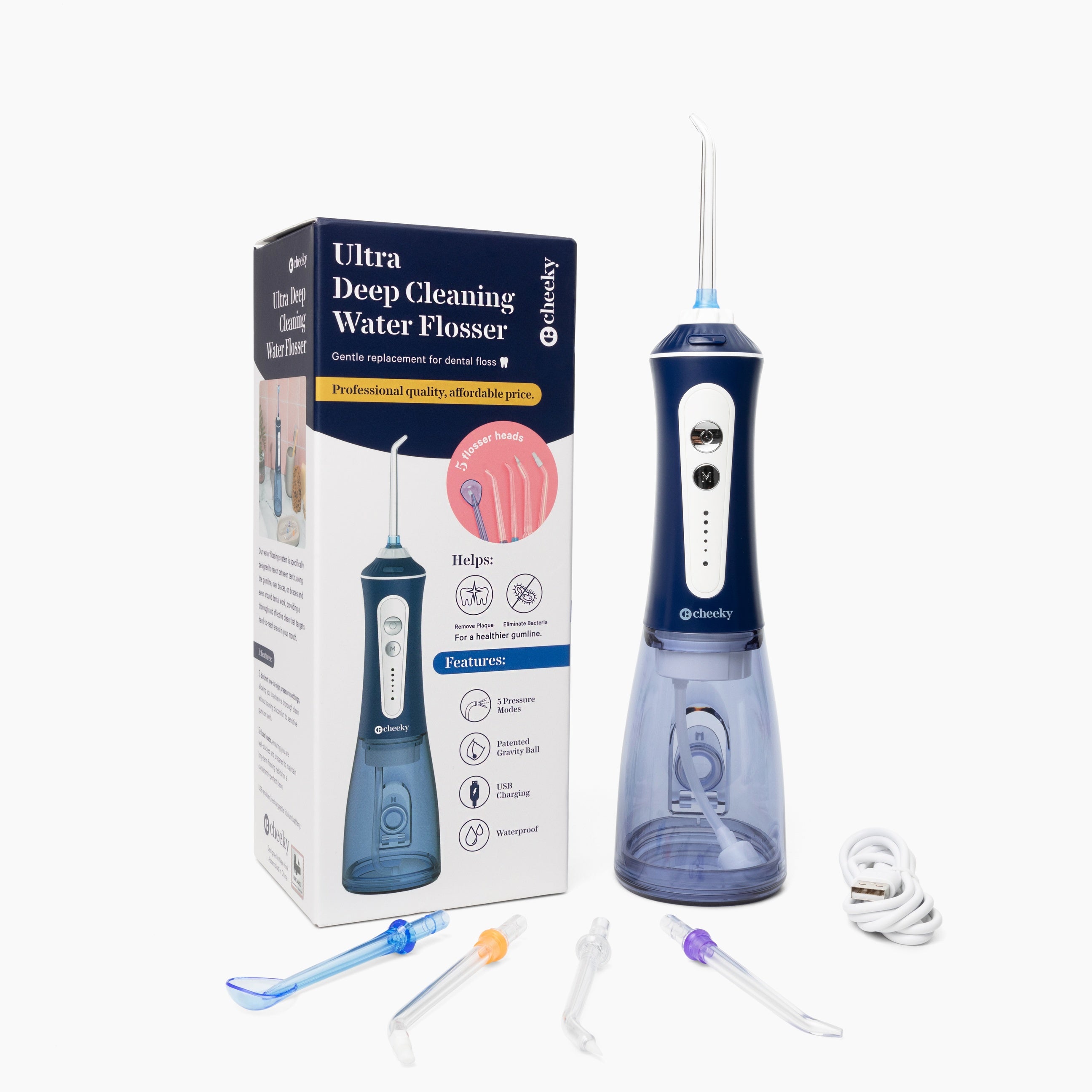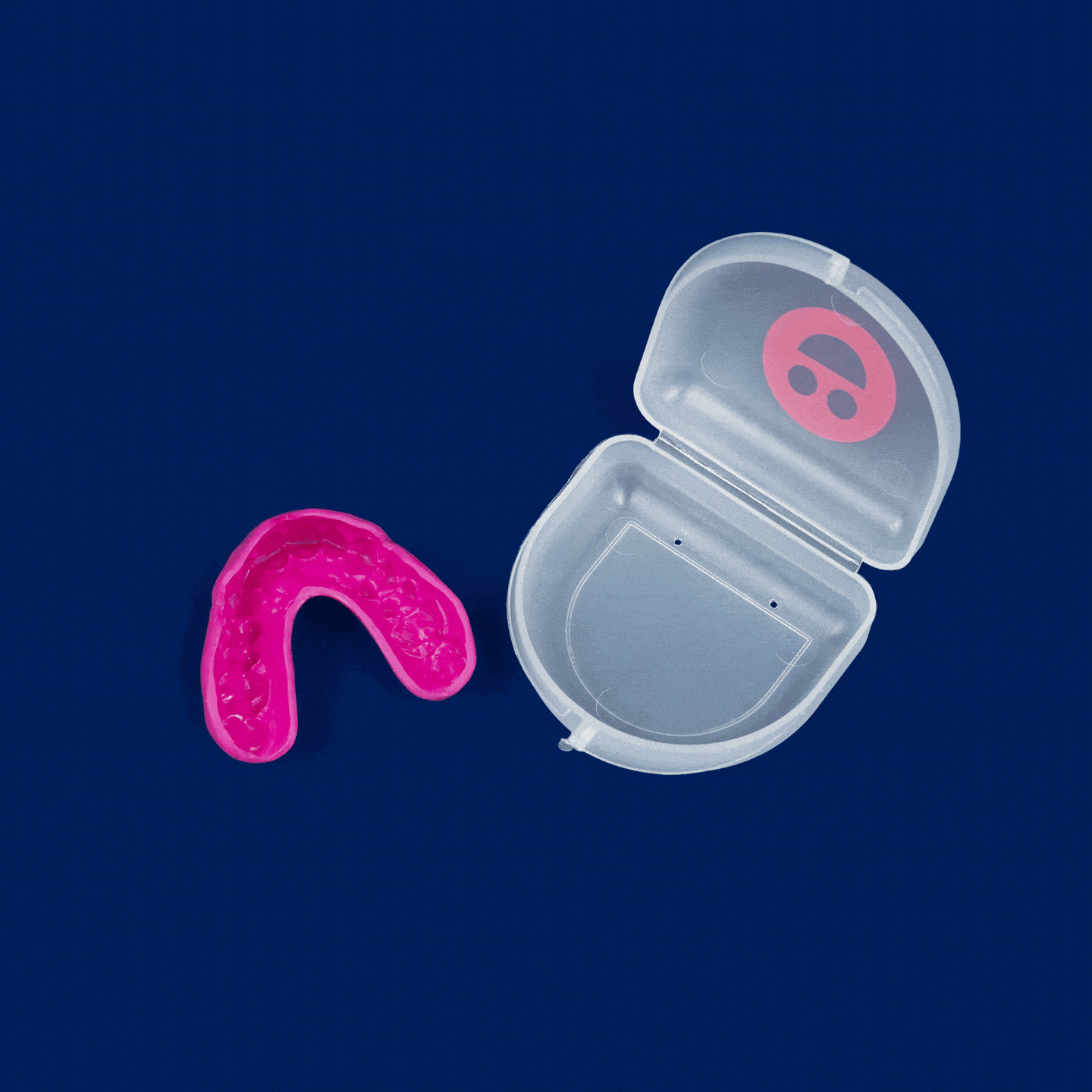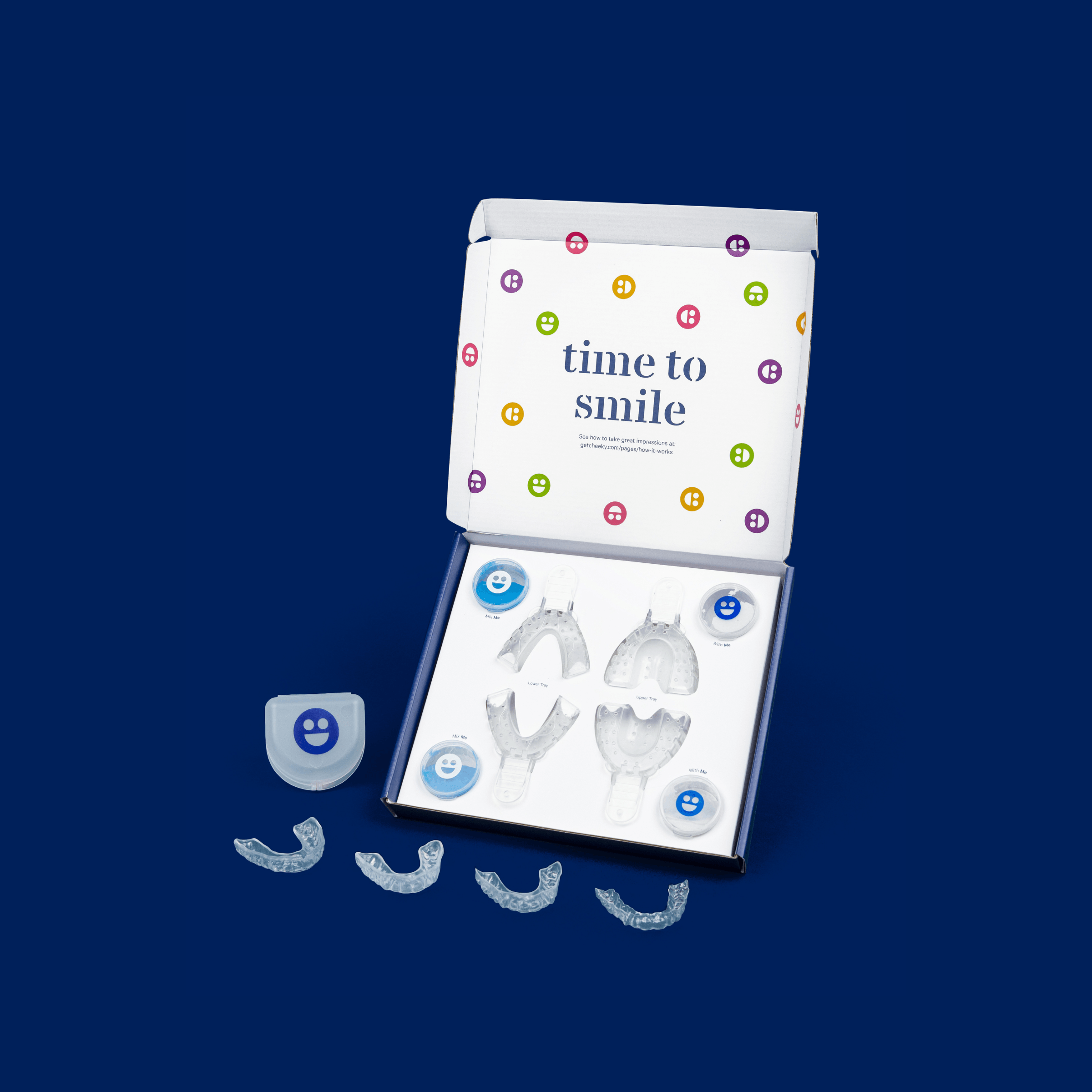Teeth grinding, also known as bruxism, can lead to tooth wear, temporomandibular joint disorders (TMJ or TMD), and sleep disorders. Since teeth grinding is best friends with jaw clenching, many also experience facial pain, sore jaw muscles, headaches, and a clicking or locking jaw.
While bruxism is extremely common in adults, it’s often a side effect or result of another issue. Teeth grinding may be caused by a combination of psychological, physical, and/or environmental factors.
While there are ways to treat bruxism as an individual issue, the best way to stop grinding your teeth is to identify and treat the underlying cause. For example, those grinding because of stress may choose to start therapy and make lifestyle changes to reduce the stress in their life.
But sometimes, it’s not that simple. In some cases, bruxism can be triggered by the use of antidepressants.
Before we get any further in this article, we have to say that we are not doctors. If you are on prescription medication, you should not stop using it without consulting your doctor first. A web article about bruxism is not a good reason to stop taking your prescription. There are other things you can do to prevent teeth grinding, and we’ll talk about them in a bit.
Can Antidepressants Cause Teeth Grinding?
Since bruxism is usually triggered by tight jaw muscles, it doesn’t make sense that antidepressants should lead to teeth grinding. After all, antidepressants are supposed to help you relax.
But, unfortunately, teeth grinding has been linked to two kinds of antidepressants.
Selective serotonin reuptake inhibitors (SSRIs) and serotonin and norepinephrine reuptake inhibitors (SNRIs) work by engaging with the chemical messengers (or neurotransmitters) in your brain.
A 1993 study demonstrated an association between antidepressants and the “onset or exacerbation of nocturnal bruxism.”
Commonly used antidepressants that may lead to bruxism include:
- Paxil/paroxetine
- Prozac/fluoxetine
- Celexa/citalopram
- Effexor/venlafaxine
- Zoloft/sertraline
The ADHD drug Adderall has also been known to cause teeth grinding.
Why Do Antidepressants Lead to Bruxism?
Based on a few studies done to evaluate the link between prescription antidepressants and bruxism, many scientists believe teeth grinding is caused by the interaction between the medicine and dopamine in the brain.
SSRIs work by suppressing dopamine, while SNRIs increase dopamine levels. Since dopamine receptors control some muscle and motor activity, a disturbance in dopamine levels can cause unwanted muscle activity. In some cases, this unwanted activity is teeth grinding.
How Do I Know If My Antidepressants Are Causing My Bruxism?
A review of SSRI-triggered bruxism case reports states that bruxing symptoms “may begin within 3-4 weeks of medication initiation and may resolve within 3-4 weeks of drug discontinuation.”
If your bruxism symptoms started about a month after you began taking your medication, your teeth grinding might result from the drug. However, you should talk to your doctor before you stop taking your prescription.
The best way to identify the root cause of your bruxism is to schedule an appointment with your doctor, track your symptoms, and honestly respond to whatever questions they ask.
Abruptly stopping your antidepressant treatment can be dangerous and lead to withdrawal symptoms.
Treating Bruxism Caused by Antidepressants
The good news is that if you’re completely sure your antidepressants are causing you to grind your teeth, there are steps you can take to relieve bruxism without ceasing to take your pills.
Some options you can discuss with your doctor include:
- Taking an additional medication like Buspirone that’s supposed to help alleviate teeth grinding for those on antidepressants
- Adjusting the dosage of your antidepressant
- Switching to a different antidepressant
Some at-home remedies you can try include:
- Adopting relaxation techniques such as meditation, exercising, and mindfulness
- Limiting the amount of hard and sticky foods you eat
- Getting plenty of rest at night
Using a custom mouthguard to prevent yourself from grinding your teeth in your sleep.
Teeth Grinding and Antidepressants
We understand that if you’re on antidepressants, the last thing you want to have to worry about is whether or not you grind your teeth. But taking steps to relax your jaw and stop grinding usually goes hand-in-hand with reducing stress and anxiety. And we can all use a bit less stress and anxiety, right?
We’ve said it so many times in this article, but it’s so crucial we’re going to say it again. Do not stop taking your antidepressants unless your doctor tells you to stop. As we outlined in the last section, there are multiple things you can do to fight bruxism without stopping your medicinal treatment.
One of the most effective and accessible solutions is investing in a custom nightguard. Over-the-counter mouthguards are usually clunky and uncomfortable, but they’re extremely cheap. On the other hand, getting fitted for a mouthguard in the dentist’s office guarantees a better fit but is usually super expensive, and insurance won’t cover it.
Thankfully, Cheeky’s here to break the nightguard norms.
Cheeky offers affordable dental-grade mouthguards that can help you sleep soundly through the night. For once, you’ll be able to sleep without the sound of your grinding teeth harmonizing with your white noise machine.
Once you place your order, we’ll send you an impression kit. Once we get your impressions, we’ll create a nightguard that’s like a glass slipper for your teeth, and it’ll be on your doorstep about seven days later.
Then, it’s bye-bye bruxism and hello to better sleep and less teeth grinding.
To customize your Cheeky guard or to explore our different plans, click here.


